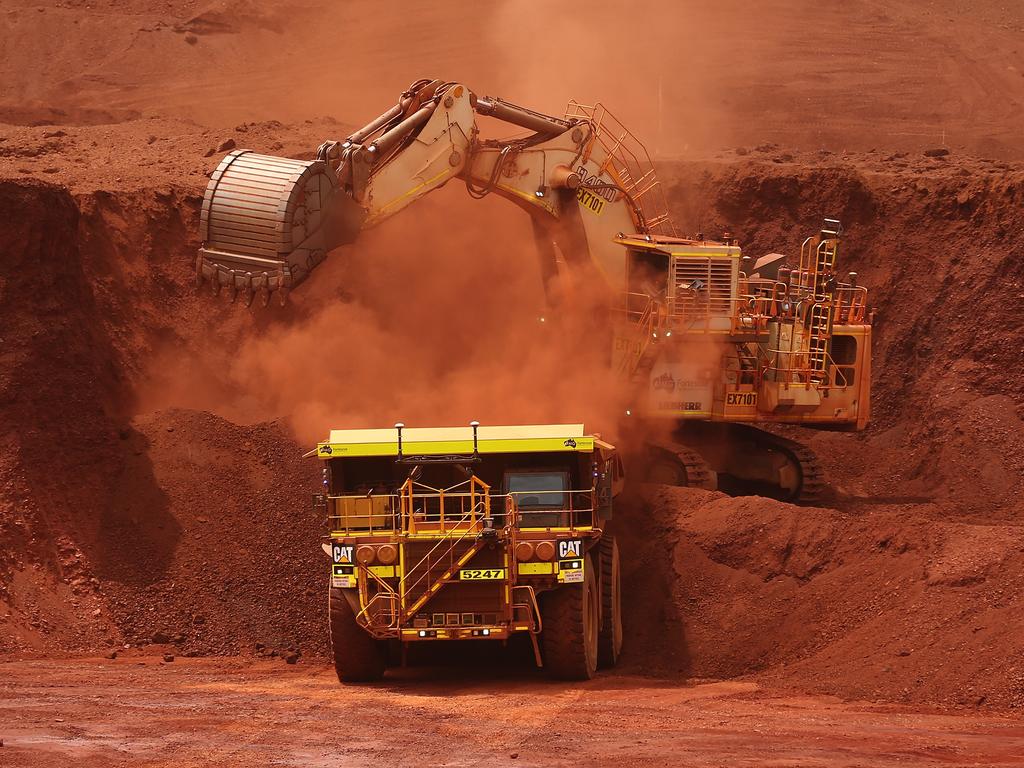China crisis could have catastrophic impact on Australia
There are some deeply concerning implications for Australia in China’s escalating crisis – and it proves how much we rely on them.
In recent years, Chinese President Xi Jinping has been warning that the Chinese economy needed to prepare for “black swan” and “grey rhino” events. The black swan event being an unexpected crisis, while the grey rhino is a more predictable crisis or set of challenges.
In order to better prepare China for what President Xi sees as a more unstable and unpredictable world, the Chinese government has taken actions to attempt to reduce systemic risks, particularly within the property sector. From the ‘Three Red Lines’ policy that was introduced in August 2020 to drive a deleveraging among property developers, to more recent actions forcing the industry to stand on its own two feet, Xi has continued to crackdown on the property sector, even as risks rise that the impact could spill over into other parts of the economy.
While the woes of the Chinese property sector and its knock-on effects may seem like they are a world away, there are some concerning potential implications for Australia’s fortunes going forward.
Australia’s economic fate deeply linked to China’s
As things sit today, China accounts for 70.1 per cent of global iron ore imports, with Australia providing 53.6 per cent of all global exports. Despite Beijing and Canberra now finding themselves very much at odds with one and other, both parties are equally reliant on each other from an economic standpoint.
There is no way Australia could find another buyer for all that iron ore if Chinese demand was to suffer a large fall, but conversely China could not possibly find another source to power its economy if Australia simply said no to further exports to the Middle Kingdom.
Despite the relatively widespread perception that a rapidly growing large economy such as India could begin to replace Chinese demand in relatively short order, this is not the case.
In 2021 India imported 5.3 million tons of iron ore, while China imported 1.17 billion tons. While India is the second largest producer of steel in the world, it is also largely domestically self sufficient when it comes to iron ore.
China’s private game of Monopoly
Last week the Chinese Ministry of Finance released a statement, outlining that local governments would be strictly prohibited from using financing vehicles to purchase their own land by raising debt, calling the process “a sham”.
In a variation on a make your own rules game of Monopoly that almost always ends with the pieces all over the floor, Chinese local governments have been creating ‘finance vehicles’ backed by their own credit to buy their land releases from themselves.
In China, roughly 40 per cent of overall expenditure is funded through the sale of land to property developers and others. Even before the crackdown on risk within the property sector began, some local governments were already turning to these shadowy finance state owned enterprises to purchase their land to make up revenue shortfalls.
Since the Covid-19 pandemic began and President Xi Jinping began the property sector crackdown, things have gone from bad to worse for local governments.
In the year to the end of September, there has been a $570 billion drop in local government land sale revenue. Should that trend continue through to the end of the year, the short fall in land sale revenue compared with 2021 would rise to more than $1.14 trillion.
Its worth noting that this is what the picture looks like with local governments using finance vehicles to purchase land from themselves. The picture without this mechanism, which Beijing has now very clearly commanded, is even less rosy.
Systemic Risk
In recent weeks, elements of the financial media have dubbed the Chinese property sector a “slow motion financial crisis”.
When looking at the numbers, its easy to understand why.
According to economic database provider Wind, Chinese local government finance vehicles (LFGV) hold 54 trillion Yuan ($11.8 trillion) in debt.
Without Beijing stepping in to backstop these entities, local governments will find it challenging to service the debts of at least some proportion of the thousands of LFGVs they are responsible for.
There are concerns that if LFGVs start to default on their obligations, they risk spreading contagion to the remaining $11.8 trillion debt pile. Considering that total LFGV debt is roughly equivalent to half of China’s 2021 GDP or more than five times the size of the entire Australian economy, a series of defaults could create a financial crisis and cause funding for other projects to dry up.
An Aussie Outlook
At the more baseline end of the spectrum, the slowing Chinese property and construction sectors will continue to weigh on demand for Australian iron ore and by extension iron ore prices, as some of the major miners have warned in recent weeks.

Considering that the President Xi now holds the loyalty of the entire seven-member Politburo Standing Committee (the top leadership echelon of the Chinese government), he can pursue the continued reining in of the property sector entirely at his own discretion.
Deng Yuwen, a former editor at a state-run newspaper and now a researcher at the New York-based think tank China Strategic Analysis, recently noted that if key Xi acolyte “Li Qiang really becomes the premier, that means Xi is omnipotent,”.
Li Qiang was subsequently named Premier.
President Xi now holds all the cards, if he wants to prioritise continuing Covid-0 and broader social stability over the property sector and insulating local governments from playing from the fiscal equivalent of fire, there is little anyone can do to stop him.
Only Xi knows what the future holds for the local government and the property sector, but if these crackdowns continue to escalate, the level of Chinese demand for Australian iron ore and other key bulk commodities may reduce significantly.
Tarric Brooker is a freelance journalist and social commentator | @AvidCommentator






